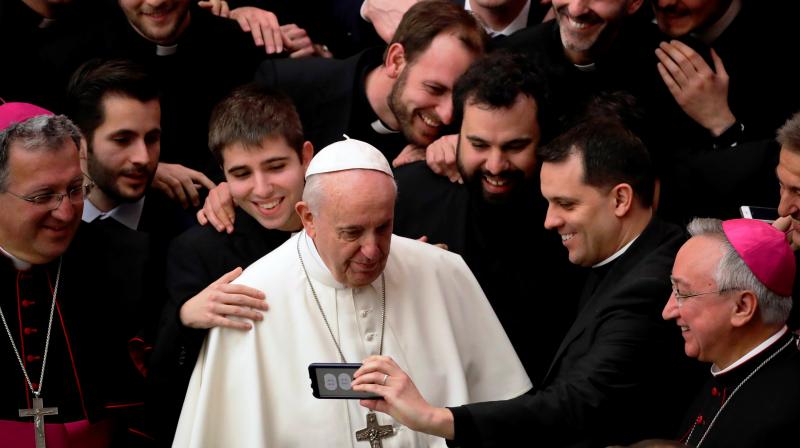Vatican's legal recourse for tackling for sex abuse
Catholic Church's regulations for investigation of, both priests accused of molestation and superiors accused of covering up, explained.

Vatican City: For centuries, the Vatican's canon law system busied itself with banning books and dispensing punishments that included burnings at the stake for heretics. These days, the Vatican office that eventually replaced the Roman Catholic Inquisition is knee-deep in processing clergy sex abuse cases.
The procedures of the Congregation for the Doctrine of the Faith will be on display this week as high-ranking bishops summoned by Pope Francis attend an unprecedented four-day tutorial on preventing sex abuse and prosecuting paedophile priests.
In countries where clergy are required to report child abuse, bishops and superiors of religious orders are supposed to notify police when someone alleges that a priest molested a child and they are supposed to cooperate with any investigations.
However, the policy is non-binding and only was articulated publicly in 2010 when the Vatican posted it on its website. Prior to that, the Vatican long sought to prevent public law enforcement agencies from learning about abusers in the clergy.
Irish bishops who considered adopting a mandatory reporting policy in 1997 received a letter from the Vatican warning that their in-house church investigations could be compromised if they referred cases to Irish police.
Nowadays, the Vatican justifies not having a binding policy that requires all sex crimes to be reported to police by arguing that accused clergy could be unfairly persecuted in places where Catholics are a threatened minority.
Once a bishop or superior receives an allegation of abuse by one of his priests, he is supposed to conduct a preliminary investigation. If the claim has a "semblance of truth" he sends the case to the Congregation for the Doctrine of the Faith for review (CDF).
The superior often will remove the priest from public ministry pending the outcome of the investigation. The CDF, has a staff of 17 canon lawyers who process the cases. There has long been a case backlog, however and at one point Francis acknowledged it had topped 2,000 with cases taking years to reach a verdict.
Usually, the CDF sends the case back to the bishop to investigate more fully, either through a full canonical trial or via an expedited administrative process. If the evidence is overwhelming and serious, the CDF can send the case straight to the pope to decide the priest's fate.
Penalties can range from the mild, a temporary suspension from publicly celebrating the sacraments or exercising ministry, to the more serious, such as defrocking, which is removing a cleric from the priesthood. Elderly priest abusers often have been spared defrockings, even for heinous crimes. Instead, they were given a lifetime of "penance and prayer."
Just last week, though, Francis defrocked 88-year-old Theodore McCarrick, the once-prominent American cardinal who was convicted by the Vatican's canon law tribunal of sexually abusing minors and adults.

